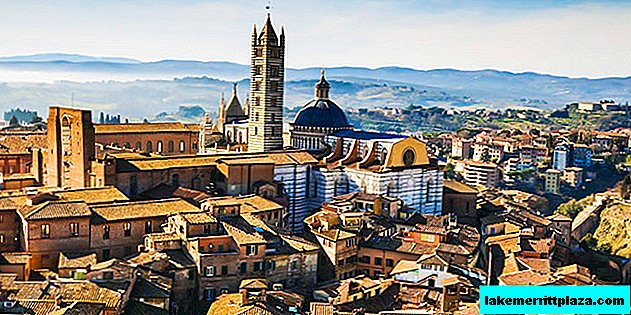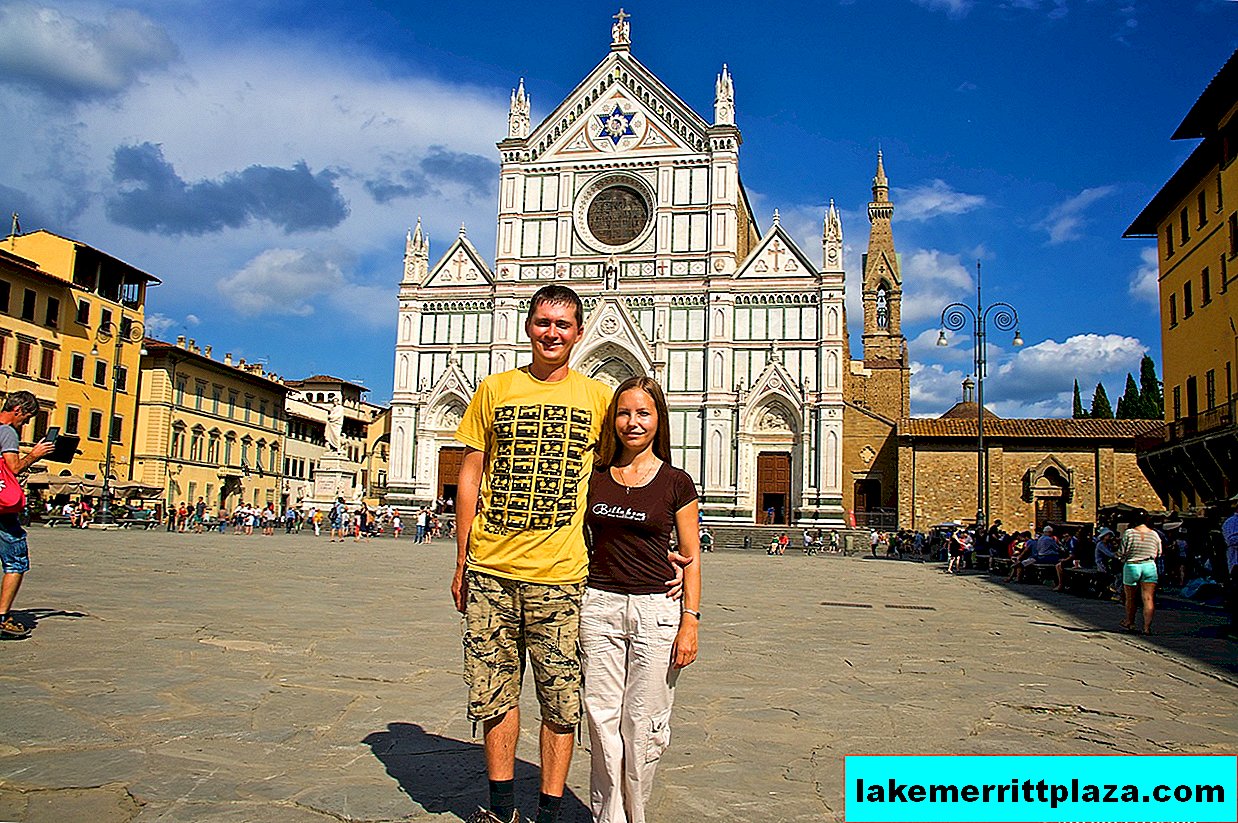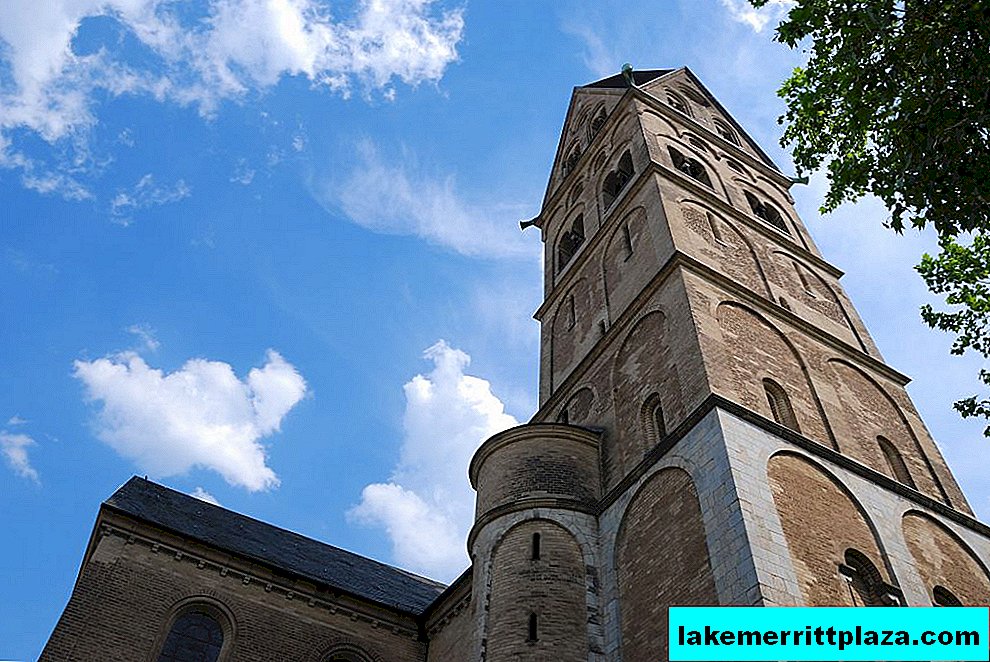So, my dear readers, the last time we walked around the historical center of the seaside Salerno, we enjoyed the beauty of the promenade, the Villa Comunale and the Verdi Theater.
Well, now you can treat yourself to something tasty. But hey, have a little patience and don't go into the first bar or osteria you come across. I will show you something more interesting.
Although you need to have great willpower to resist the urge to sit at a table in a street cafe and drink a cup of espresso.
So we went out to the narrow Via Mercanti, house 75 (Via dei Mercanti, 75). It is here that the oldest pastoric Salerno is located. Word pasticceria translates as confectionery. But in fact, Italian pastycheria is more than just a place where sweets are sold. A true shepherd’s is a whole confectionery house with traditions passing from owner to owner (and most often from father to son). Pasticheria sells only those sweets that it makes itself. Cakes, pastries, handmade sweets, buns with all kinds of fillings and names, in a word, what is called a word in Italian dolce.

Pasticheria on Mercanti Street has its official name - "Anticadolceria", but its people simply call it - the pasture Pantaleone, by the name of the previous owner, Mario Pantaleone.
... 1868 year. Salerno is growing and developing, the city is entering its prime. It was then that Mario Pantaleone decided to open a small confectionery shop in the former chapel, which sold not only delicious dolce, but also the so-called colonial goods: tea, coffee, sugar, spices. The place was chosen well - near the Tyrrhenian Sea in the very center. The patisserie quickly became popular. This place was visited not only by ordinary citizens and sweet tooth, but also by celebrities: Garibaldi and Queen Margarita herself. In the last century, confectionery products were also tasted by the powers that be: Pope John Paul II, Mikhail Gorbachev, Bill Clinton.
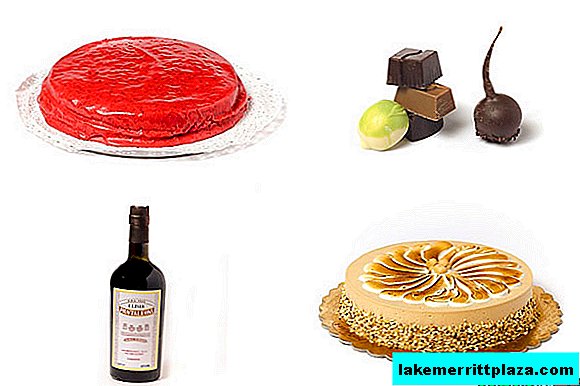
Pantaleone’s modern pastoralism is a very democratic place where you can try whatever your sweet tooth wants. Cupcakes, rum women, cassettes, crostats, chocolate, marmalade, marshmallows, panettone, semifreddo, liquors ... Pantaleone confectioners have always been magicians who know how to surprise.
Official website www.dolceriapantaleone.it
Shopping in Salerno
Well, now it's time for us to walk along Corso Vittorio Emanuele, the main street of Salerno. Milan street with the same name is called a large shopping center in the open air or a paradise for shopaholics. Of course, the Salersky Corso Vittorio Emanuele may lose in size and richness of choice, but, nevertheless, every shopaholic will find something to his liking. There are shops of major European retailers, such as United Colors of Benetton, Intimissimi, Kiko, Svarovski, Swatch, as well as individual manufacturers of clothing, dishes, accessories, shoes. If you take a walk around Corso on a weekday in January, be sure that you are guaranteed discounts of up to 70%. Yes, it’s best to come here in January. Corso resembles a street from a fairytale movie. Who is not there - street actors, yogis, magicians of all stripes show their skills, and you do not get tired of gasping with admiration at the sight of colorful balloons illuminating your path.
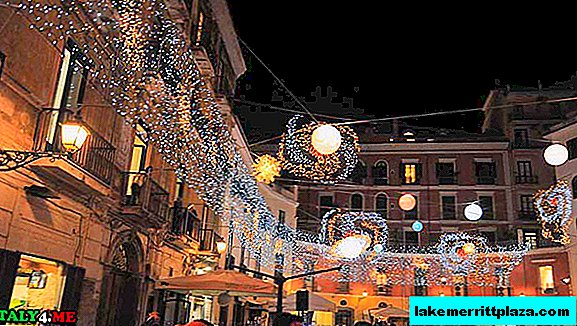
Each time, leaving Salerno, I certainly promise myself to come back and remember the famous song "Return to Sorrento":
Do you hear in the groves of orange
The sounds of nightingale trills?
All in the flowers fragrant,
The land has blossomed around.
And I say to myself: "Ciao, Salerno! See you, amore mio ..."


